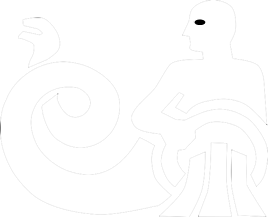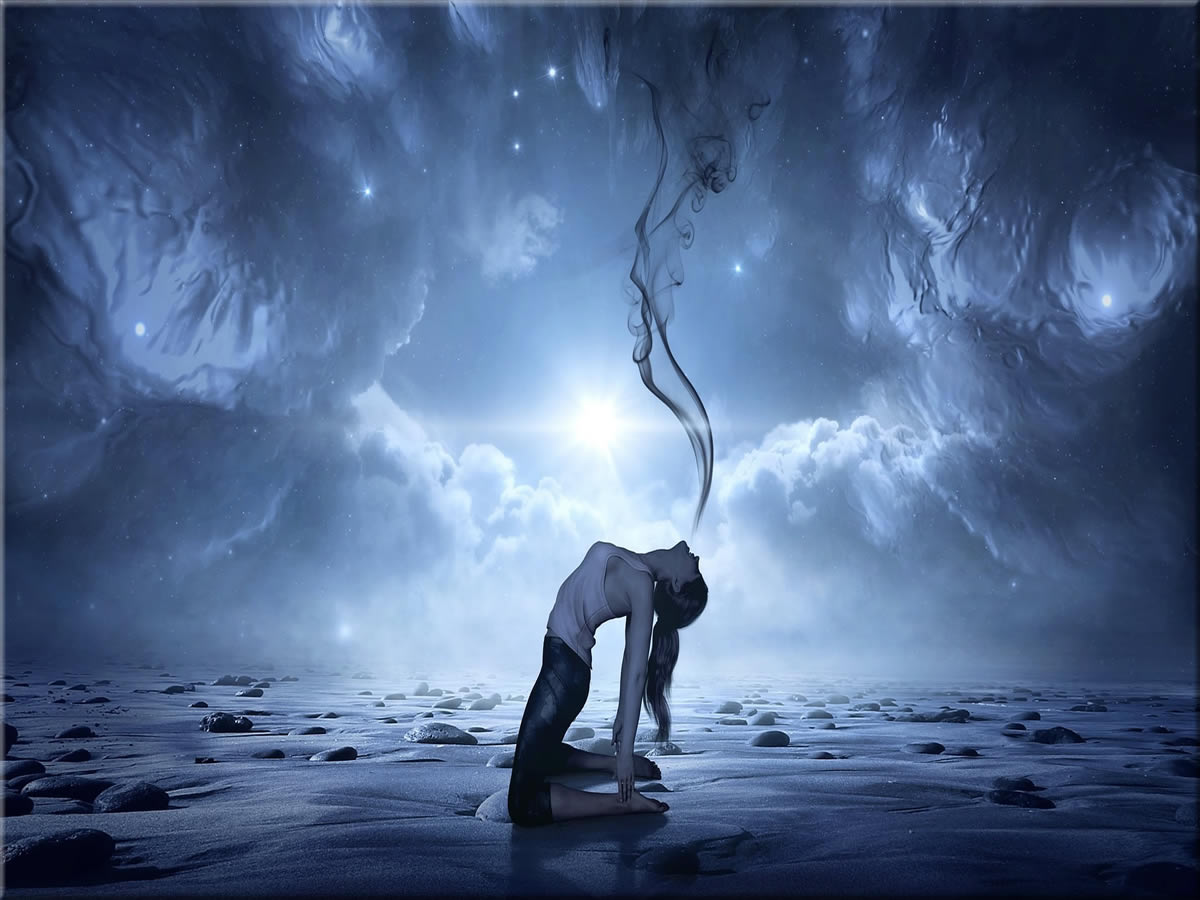
Karma Effect – The Consequences of Past Acts
Your past actions have a present effect on your life, and your current actions have a future impact—”As you sow, so shall you reap,” also known as the law of cause and effect or the karma effect. The Eastern traditions of yoga, Buddhism, Hinduism, and Taoism employ the term “karma,” often associated with the concept of fate.
Karma originates from the Sanskrit word “kri,” meaning to do or act. It includes everything we say, do, and even think. The principle of karma dictates that we all face the consequences of our past actions. Our past and present actions are stored in subconscious memory, thus creating karma that will be realized in the future. Understanding the law of karma enables us to harness our free will and decision-making power to make positive changes and lead better lives.
Check out more videos on our YouTube channel
The Law of The Karma Effect
Karma refers to action or deed and represents the universal law of cause and effect. A good intention and a good deed will create good karma and a positive future, while bad intentions and evil deeds will trigger lousy karma and a negative future. Creating good karma is the way to overcome the effects of bad karma, as it is impossible to erase it. The effects of karma stem from their causes, so it is necessary to balance them out. During this process, the person to whom the karma relates will experience suffering to purify their desires and learn.
Karma has no menu; you get served what you deserve.
If the karmic results are not reversed, the individual will be reborn and face the same karmic lesson again. Remember that the law of karma operates based on the principle of cause and effect, also known as the principle of action and reaction. People often confuse this law with the Western concept of sin and punishment; however, they differ. But in the law of karma, there is no concept of guilt or condemnation. Therefore, it is an objective, logical system of cause and effect.
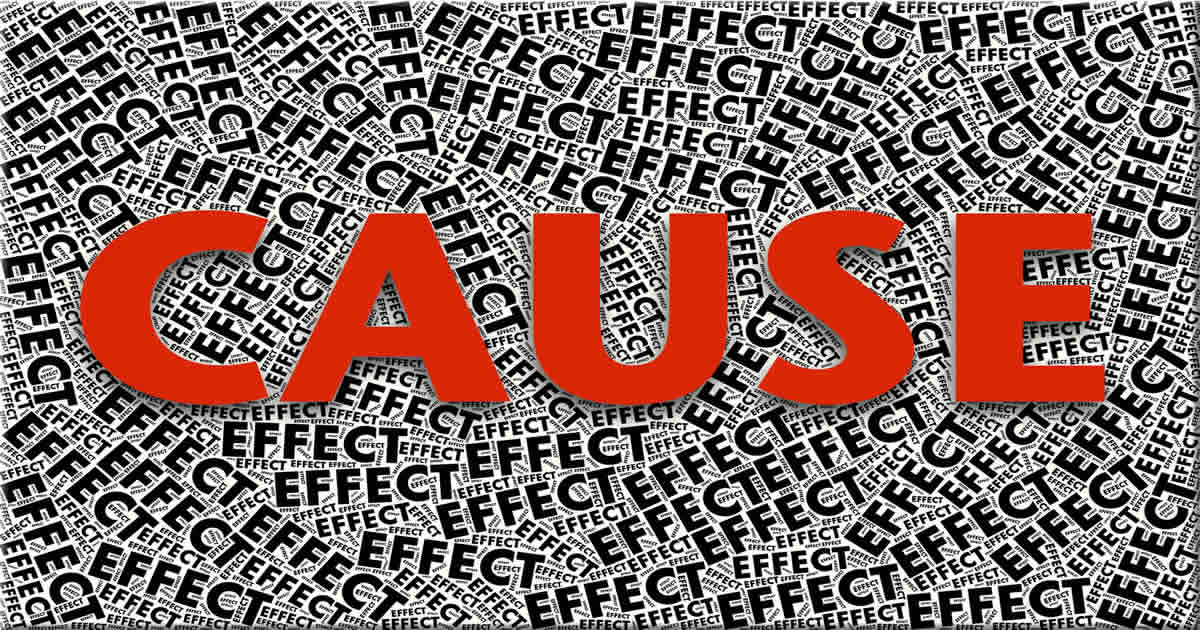
No higher power or god punishes or rewards us. Still, only our ignorance, fears, uncontrolled desires, and feelings lead us to consequences we find hard to accept and to results we consider punishment. The law of karma is immutable, all-encompassing, precise, and accurate. It operates effectively and justly. Hence, it does not require a supervision system. It is a universal law to which everything in nature is subject, each one of us. There are no exceptions, protections, or corruptions.
The Butterfly Effect
Like gravity, karma is always in full effect, even when people are unaware of it. The soul is eternal and unborn, but due to the false ego and illusion, it accepts a material body. A living being is born into a human form after a gradual evolution in “samsara”—the cycle of birth and death through 8,000,000 types of life. Once endowed with a human body and intelligence, it is fully responsible for all its actions.
The Book of Wisdom is a must-have book for every free-thinker and truth-seeker. It offers a wealth of knowledge, encompassing both surface-level truths and deep, hidden insights from the esoteric realm.
Be aware that every decision you make affects others and shapes collective karma. The universe is a pulsation of energy in which every vibration, even the slightest, has an effect. The karmic law is comprehensive, so according to it, the “butterfly effect” is indeed applicable. When a butterfly flaps its wings on one side of the world, it can cause a hurricane on the other side of the world. Our personal life experiences and choices are inextricably intertwined with the whole.
The Principle of Karma Effect
When we reflect on this story, we can see one of the crucial principles of karma: accepting the knowledge that our thoughts and actions have an impact that transforms both the world and ourselves. So, we build and create our world with our thoughts and actions. It is precisely the knowledge that every action has a consequence that encourages us to change, develop, and improve. Therefore, in this sense, karma is necessary to drive change and progress.
How people treat you is their karma; how you react is yours.
Realizing that our past actions have led to this moment can be scary because we can’t shift the responsibility onto someone else. A saying goes, “If you want to know what you did in the past, look at how your life is now. If you want to know what kind of person you will be in the future, look at what you are doing now!”. When we understand and accept the principle of karma, we can recognize the immense power that we possess. It is the power to make good karma.
The Present Moment
There is no greater power in the world than the proper action in the present moment. By understanding the laws of karma, we recognize the importance of paying attention to the present moment and acting thoughtfully and wisely. We have a choice at any moment. It often seems to us that this is not the case. We may not be able to change our current circumstances drastically, but every thought, every small decision, and every type of behavior has a much greater meaning than it seems to us.

Even when things are not as we would like them to be in the present moment, the law of karma teaches us that every positive effort we make must inevitably bring good results and help us get closer to what we want. The moment we decide is the most crucial in shaping our fate. However, it is essential to recognize its power, as it is a moment when we can create good karma.
Types of Karma
Analyzing the Vedas scriptures, we can conclude that they describe two basic types of karma: Sanchita and Kriyamana.
Sanchita karma is the subconscious karma from past lives. This karma represents the total karma accumulated in our past lives, including the karma we have collected through our actions in the current incarnation. This type of karma is beyond our sphere of influence, since our past actions have already shaped it. These are wrapped-up, unfinished, excellent, and harmful actions from previous lives that must be acted out and appear in this life as desires – in other words, “samskaras.”
What is done cannot be undone, but one can prevent it from happening again.
Moreover, karmic astrology and numerology reveal the effects of karma from past lives or inherited karma and explain why certain things happen to us. It discovers causes based on one’s past lives. The soul matures through reincarnations and numerous worldly experiences. The ultimate goal is to achieve complete purification and attain higher spiritual levels, free from the challenges that often arise in earthly life.
Discover the New and Improved Personal Numerology and Astrology Reports. These outstanding Reports deeply explore your unique, energetic blueprint.
Kriyamana Karma
Kriyamana karma refers to the conscious karma that we are creating at this moment. This karma represents our decisions and abilities to act out of our free will and independence. Our subconscious records and stores everything we do as a memory code. This code represents the cause of our successes or failures, happy or unhappy loves and marriages, poverty or wealth, physical and mental happiness or suffering, sickness or health. Activating the code brings a set of different circumstances that can represent both happiness and misfortune for us.
Therefore, depending on our actions, we can significantly influence the kriyamana karma. If the way we work — kriyamana karma —in our current embodiment favors our environment and relationships, then such a way of acting will positively influence the results our future karma brings. Such positive results can manifest in being born into a well-off family, having a higher education, being healthy, or possessing a beautiful physical appearance.
The Subgroups of Karma
There are three subgroups of the two types of karma:
- Dridha karma – a solid, rigid, and unchanging karma
- Dridha-adridha karma – medium strength karma
- Adridha karma – soft and changeable karma
Dridha Karma is associated with rigid karma, which is difficult to change. It appears in horoscopes/numeroscopes, where many indicators exist for a specific situation. The greater the number of good or evil indications in a particular area of the horoscope/numeroscope, the more obvious its results will become.
Dridha-Adridha karma represents medium–changing karma. This type of karma is evident in horoscopes and numeroscopes, where only some indicators confirm a specific situation or event. Concentrated application of creative will can change this karma, whether good or bad, but it requires considerable effort.

Adridha Karma represents variable karma, which yields varying results that can be easily altered. When there are no longer the same indicators of a specific situation or event in the horoscope/numeroscope, we are talking about this type of karma. This karma is the easiest to change, and often it is only necessary to become aware of the areas of life that cause us problems and make specific changes in those areas to improve the situation.
The Purpose of Life is to Live Through Karma
Every human carries their karma, which encompasses the consequences of past actions, both positive and negative. Things in life don’t happen by chance. We are not born on Earth to merely survive or enjoy life; we are here to fulfill our karma as well. Various religions that do not accept karma and reincarnation as integral to human life have persuaded most people in the West not to believe in karma. As a result, they do not understand this concept at all.
The karma a person has to fulfill in this life can be seen through astrology or numerology readings immediately after birth.
Related topics

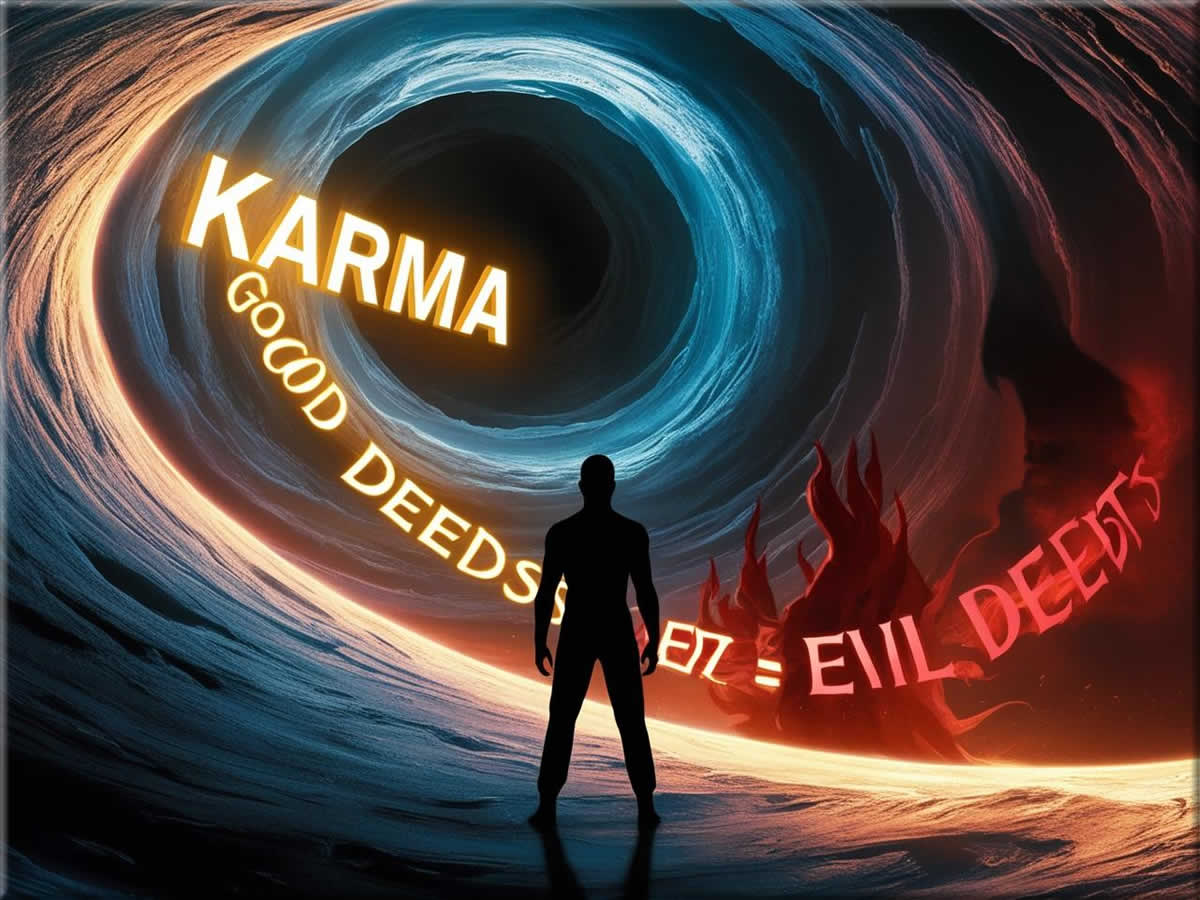
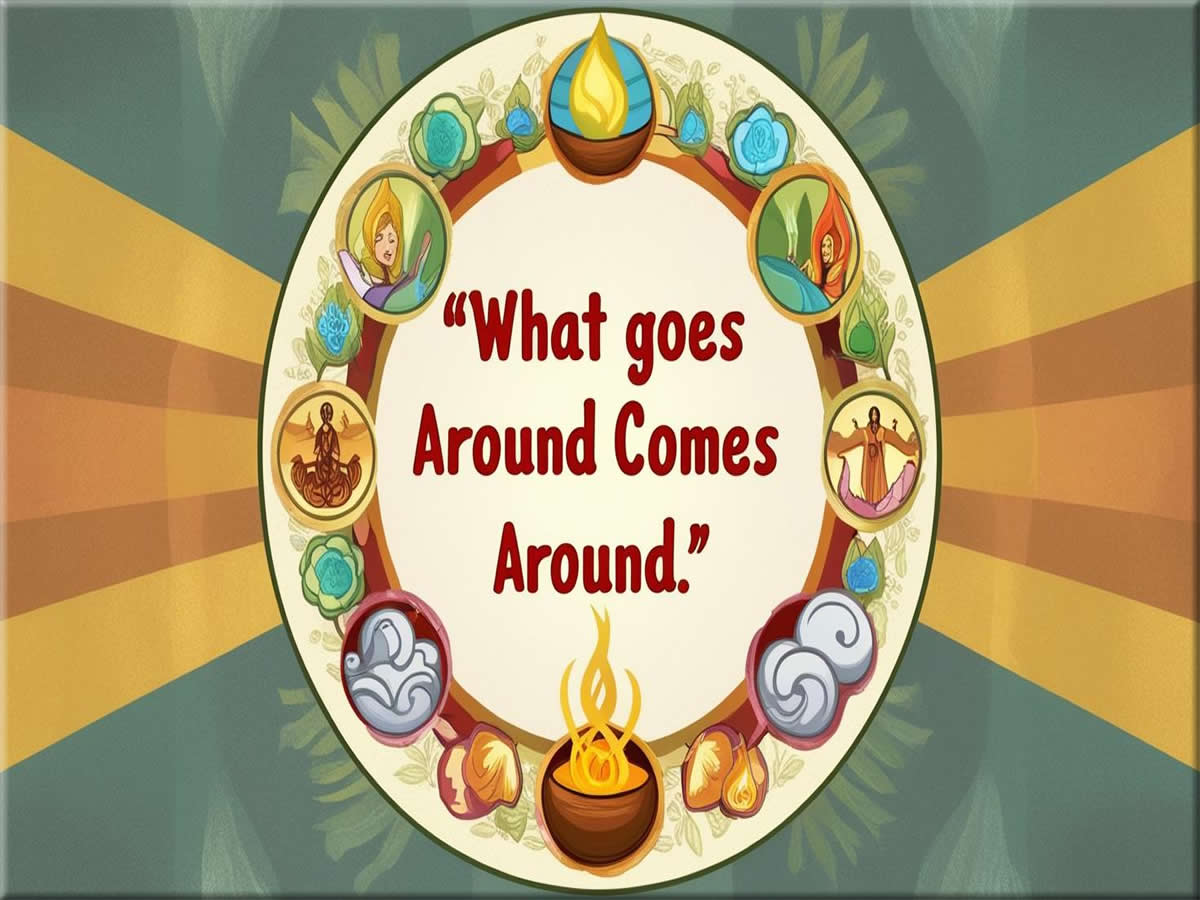
Discover more insights in the Karma category.
